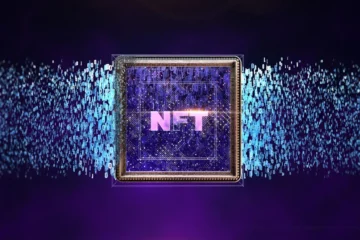A non-fungible token (NFT) is a unique version of a real-world asset that acts as a proof of ownership. The value of an NFT is determined by the price that someone else will pay for it. A stock’s price is affected by several factors, including the economic indicators and fundamentals of the company. These factors are based on investor demand. A NFT may sell for less than its original purchase price, or no one will buy it at all.
The NFT world is already integrating with the decentralized finance industry. There are decentralized applications that allow people to borrow money using crypto, as long as they can put up collateral. In many cases, the creator of the NFT will receive partial or full compensation for the work produced on the network. This is particularly useful for climate-minded artists who may wish to sell their art but do not want to part with their crypto.
The NFT’s main advantage over traditional currency is that it’s not prone to fraud. There’s no need for owners to worry about losing their money, and it can be a great way to generate extra revenue for your business. But it’s important to remember that there are risks associated with these new technologies. Make sure to research carefully and proceed with caution. If you’re looking for a high-quality way to earn money while building your online business, an NFT can be the perfect solution.
An NFT is a dumb asset. If you screenshot an NFT, you’re considered to be a freebie. Picasso’s Guernica, on the other hand, is considered a multimillion-dollar work of art. While the NFT can be useful, it’s best to keep your money in the real world. It’s speculative and risky, so don’t invest in it.
Read More: Reasons Why Non-Fungible Tokens Are a Good Way to Invest in Cryptocurrencies
The NFT’s primary use is to democratize investing by enabling multiple owners to share a single asset. Unlike physical real estate, the digital equivalents of assets can be freely divided among many owners. A good example of this is a ticket for a sporting event, which requires only one owner. The value of a painting may increase several times if more than one person owns it.
An NFT is an asset that is exchangeable on an NFT marketplace. Virtual real estate is a more efficient way to buy and sell property. By contrast, virtual real estate is a virtual asset that is recorded in a decentralized ledger. A digital item holder is a perpetual owner of the digital asset. The value of an NFT is not affected by the price of the physical property.
While many of the real-world applications of the NFT have yet to be fully explored, some have already shown some promise. Some artists are creating their own NFTs and reselling them for money. A Taiwanese tech startup is already using a similar NFT to provide rights to musicians. Another NFT-based social network, called Bitmark, allows artists to create their own virtual worlds and receive direct compensation for their work.
While NFTs are still in their infancy, they can have some practical applications. For instance, a cryptocurrency can be linked to a physical asset. The blockchain connects the NFT to the real-world. For a cryptocurrency, the NFT is tied to that asset’s creator. Those two entities are not the same, but they are related. However, the two-way relationship between the virtual and real world is often very strong.
Besides being a cryptocurrency, NFTs also allow people to trade digital artwork. It is possible for an NFT to represent a physical asset, such as a sports team. These are bought and sold through an intermediary website that is linked to an online marketplace. The cryptocurrency exchange can accept and use these coins. These digital assets are not regulated. You can buy and sell these digital items with the same money you would spend on real-world assets.




